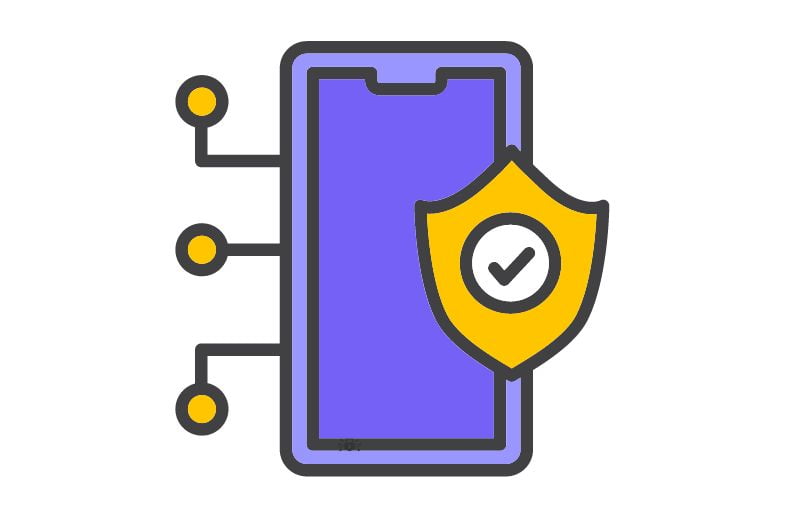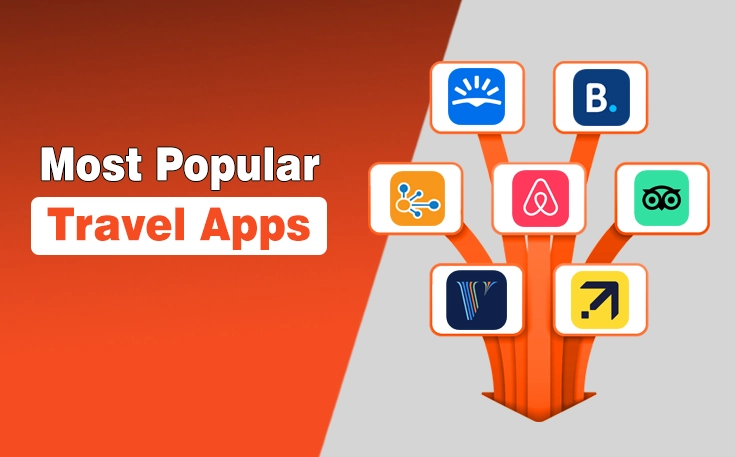Living in a global village that is connected to the internet, mobile applications are an integral part of daily life. Banking, shopping, gaming, and social networking applications are used to perform a lot of tasks every day.
However, with the advancement in technology and the increase in the use of mobile apps and devices, the security risks involved in mobile application development have also increased.
This is where mobile app security comes into play to keep users, their devices and sensitive data protected while using their favourite apps.
In this article, I will define what is mobile application security and why it is important to make users feel protected when doing every day tasks on mobile devices!
What Is Mobile Application Security?
Mobile application security is all about protecting a mobile application and the data it contains against cyber threats and attacks.
Mobile app security is important because unprotected mobile applications can be vulnerable to malicious hackers. These hackers could gain access to sensitive information, steal customer data or infect other users’ devices with malware.

Why Mobile Application Security is Important?
Mobile application security should not be underestimated nor be taken lightly:
Protection of Sensitive Data
Personal and confidential data like financial information, health records, and login details are frequently stored within mobile applications. Mobile application security threats pose a risk to personal identity, money, and company image if the mobile application is hacked.
User Trust and Confidence
Consumers have high expectations about the applications’ security they use and data protection on their mobile devices. Malicious apps can reduce the trust level of the users and lead to negative impacts on businesses.
Regulatory Compliance
Many industries, such as healthcare, finance, and government, use data. Hence, they have specific data privacy and security requirements to follow. Consequently, mobile application security becomes critical to following these regulations and preventing penalties.
Brand Protection
A security breach or an incident can also cause harm to the brand image and customers’ loyalty. Strong application security measures assist in protecting the image of a brand besides ensuring that client trust is not compromised.
Key Mobile Application Security Threats
There are several threats that can compromise security of mobile apps and some of them are listed below:
- Malware: Malware is a malicious program that can compromise the mobile device and data or harm the application and other corresponding programs.
- Phishing: Phishing is another kind of, that focuses on deceiving users into handing over personal details over the internet through email or through a website.
- Man-in-the-Middle Attacks: These attacks disrupt the conversation between a mobile device and a server, and enable attackers to listen to the content or inject code.
- Reverse Engineering: Determined adversaries can study an app and leave it open for having exploitable weaknesses in its code.
- Side-Channel Attacks: These attacks target the physical features of a device in order to obtain confidential data.
Best Practices for Mobile Application Security
To ensure the security of mobile applications, businesses should implement the following best security measures and practices:
Threat Modeling
A thorough evaluation should be made for threats and risks in an organization to identify the potential assets and risks.
Secure Coding Practices
Ensure that you follow good coding standard that help you avoid problems such as SQL injection, cross site scripting, and buffer overrun.
Regular Testing and Auditing
Performance Security Testing, Penetration testing and vulnerability assessments should be conducted frequently so that weaknesses that are found are analysed and solved as soon as possible.
Data Encryption
Secure data when stored by using encryption to keep it safe from unauthorized access when in its storage or being transmitted.
Secure Authentication
Use well-developed verification procedures such as multi-factor authentication to identify users.
Regular Updates
Ensure that the app and all of the elements which compose it are always updated, with all the existing safety fixes, hooks and updates.
User Education and Awareness
Increase public awareness of mobile security measures. For example, not downloading unknown applications, using a strong password and not being deceived into providing personal details by a ‘phisher’.
Incident Response Plan
It is important to set up an overall incident response plan that will enable the organization to respond to security incidents and reduce their consequences.
Since the usage of mobile technology is expected to increase shortly, the risks of facing mobile application security threats are also expected to grow. New vulnerabilities and attacks will also be developed hence the need for organizations to adapt to the new trends.
If you are looking to develop a safe and secure app for your business, check out pro Tips to Choose the Best Mobile App Development Company in your area!
Final Words
It looks like the future of mobile application security is going to be more advanced. Technologies, advanced best practices and security checks at the same time will be continuously heading in future. Modern technologies such as blockchain, artificial intelligence, and machine learning can also be used to increase security measures and prevent threats.
However, businesses also need to implement other non-technological measures. These measures include training and education of development teams that would be responsible for the development of secure mobile applications.
Therefore, it is paramount for businesses to work towards a Mobile Application Security (MAS) approach that will ensure the users. The data in the applications as well as the businesses themselves are protected in the ever growing digital world.





